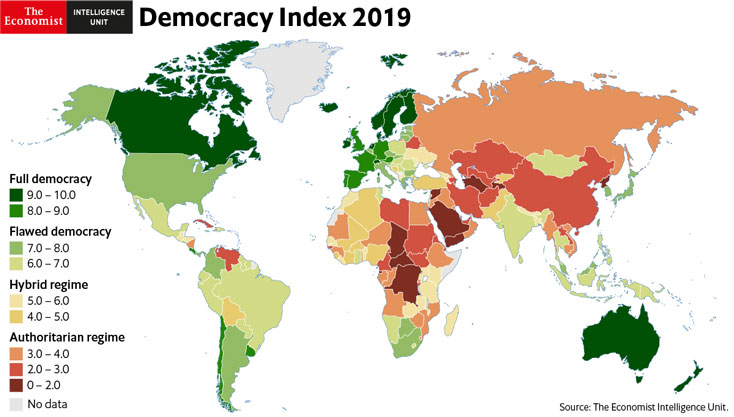In my previous post I focused on the issue of that free media and the protection of journalists is crucial in the quest for access to information. And the links between democracy, free media and development have been well documented and the more freedom media have the greater chance to control issues of corruption which might be one of the biggest obstacles for development.
For this post I will zoom in on the area of corruption, a huge enemy to development work. According to UNDP it is critical to tackle and mitigate corruption in all forms to be able to achieve the Sustainable Development Goals. This as they all rely on strong institutions to meet the need of all people in an effective way. It is also the case that new technologies (if properly managed) do have the potential to enable more effective and participatory forms of accountability and transparency.
With this participatory form in mind I will demonstrate a local initiative here in Zimbabwe that was launched just recently.
Whistleblower app
In September this year the Zimbabwe Anti-Corruption Commission (ZACC) launched an anti-corruption whistleblower mobile application. It’s claimed to provide an easy way for citizens to report suspected cases of corruption in a safe and confidential way. This is done by sending all data traffic through an encrypted platform and mask all incoming records with only one IP address.
“As much as we want the public to report cases of corruption, we as the commission have to ensure that we provide a platform that ensures the non-disclosure of the identity of whistle-blowers and security of the information given”
Justice Lloyce Matanda-Moyo, ZACC chairperson
These citizens participatory approach will help the commission to deal with one of their biggest challenges. That of the lack of concrete evidence, or that reports have been filed too long after the incident and the evidence has been concealed. A public collaboration like this might help to speed up the process between report and conviction. This by using this app to submit useful evidence that the public has witnessed.
Corruption & Democracy Index
To further put this post into context I think it is relevant to mention both the Corruption index and the Democracy index for Zimbabwe.
Every year Transparency International provides a corruption index (CPI). Using a scale of 0 to 100 (where 0 signifies high level of corruption and 100 signifies minimal levels of corruption). It ranks countries based on how corrupt the countries public sector is. The CPI is the most common used indicator of corruption worldwide and Zimbabwe is ranked 24 out of 100 countries so the country is considered to be highly corrupt.
The Democracy index provided by the The Economists Intelligence Unit. The Democracy Index is based on five categories: electoral process and pluralism; civil liberties; the functioning of government; political participation; and political culture. According to the democracy index from 2019, Zimbabwe is considered to be an authoritarian regime.

So, is it safe to use it?
To put this into perspective I contacted the executive director of Transparency International in Zimbabwe (TIZ), Ms Muchaneta Mundopa.
“Whilst the application is a step in the right direction people have a hard time trusting ZACC. There is a general feeling that even if they report incidents to ZACC there is a lack of both will and capacity to investigate cases of grand corruption or cases where politically exposed people are involved”Muchaneta Mundopa, Executive Director TI Zimbabwe
This is against the backdrop of the fact that Zimbabwe do not have any legal protection for whistleblowers to this date.
“We at TIZ are advocating for the government to pass the Whistleblower protection Act to protect whistleblowers and witnesses of corruption. This is in line with various regional and international anti corruption conventions that Zimbabwe is a state party. And it also lies at the core of the protection of the human rights as enshrined in the Constitution of Zimbabwe”
Muchaneta Mundopa, Executive Director TI Zimbabwe
TI Zimbabwe provides their own whistleblower service and it is a hotline phone number that you can call to file a report. And if someone chooses to come in person to make a report, they have the option of not divulging their identity.
Place in time
This launch comes in a time when the threat on the media sector in Zimbabwe is increasing, as mentioned in my previous post. Transparency International globally is also acknowledging the fact that journalists and civil society in Southern Africa are suffering retaliations for exposing corruption during this pandemic. For example, in July this year the journalist Hopewell Chin’ono was arrested on allegations of “inciting public violence”. However, reports suggest that the arrest is rather based on his series of articles on alleged government corruption involving Covid-19 response funding.
Whistleblowing is one of the tools that can help mitigate corruption. To improve governance and build legally and ethically healthy governments, institutions and organisations. But it needs to be safe to blow that whistle, whether you are a civilian or a journalist. So, the question remains – Living in an authoritarian country, do you dare to be a whistleblower and trust that the technology provided by a government funded institution is really keeping your identity anonymous?
References
News articles
https://www.sundaymail.co.zw/whistle-blower-app-boon-for-anti-corruption-drive
https://www.bbc.com/news/world-africa-53477423
ZACC
https://zacc.online/
Transparency International – CPI (Corruption Perception Index) for Zimbabwe
https://www.transparency.org/en/cpi/2019/results/zwe
The Economists Intelligence Unit – Democracy Index for Zimbabwe
https://www.eiu.com/topic/democracy-index
Interview with Ms. Muchaneta Mondopa, Executive Director at Transparency International Zimbabwe


